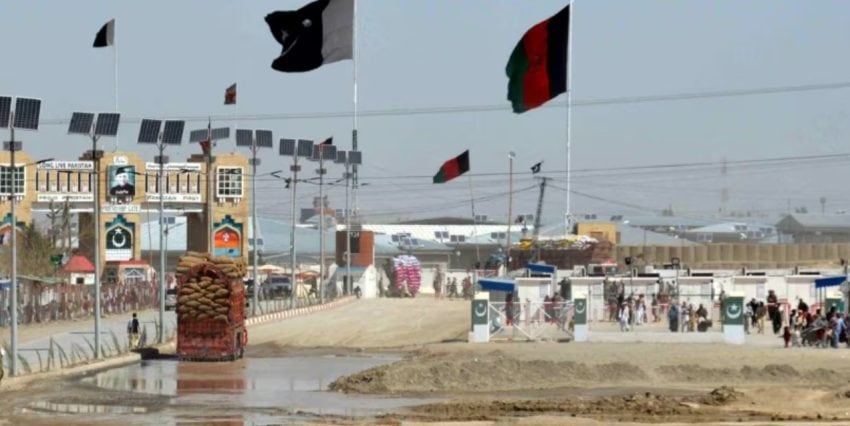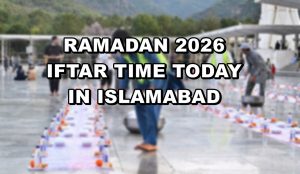By Zahid Bashir
History has never been a simple chronicle of victories or defeats; it is a mirror reflecting the choices of nations. The relationship between Pakistan and Afghanistan—two neighbours bound by faith, geography, and bloodlines—has been a story of missed opportunities, mutual suspicion, and painful sacrifice. Yet within this turbulent past lies an undeniable truth: our futures are inseparable, and the road to regional peace and prosperity runs through mutual understanding, not mistrust.
The Lessons of History
From the early days of Pakistan’s independence, relations with Afghanistan were shadowed by border disputes and political misunderstandings. Decades of coups, invasions, and foreign interference turned Afghanistan into the epicentre of great-power games—each leaving deep scars on both sides of the Durand Line.
When the Soviet Union invaded Afghanistan in 1979, Pakistan stood at a moral and strategic crossroads. Despite limited means, it opened its borders to millions of Afghan refugees, offered sanctuary, and supported the Afghan resistance at immense human and financial cost. The world witnessed the resilience of Pakistan’s people, who shared their homes and livelihoods with their Afghan brethren. This generosity was not politics—it was faith in action.
But goodwill often meets betrayal in the theatre of geopolitics. The decades that followed brought waves of militancy, economic strain, and attacks on Pakistani soil. Over 70,000 Pakistanis lost their lives, countless families were displaced, and the nation’s development slowed. Yet Pakistan never abandoned its belief in dialogue and regional stability. Our military, our diplomacy, and our people continued to extend the hand of peace—even when confronted with hostility.
A Strategic Misunderstanding
Afghanistan’s internal struggles have often spilled across borders, breeding narratives that paint Pakistan as a villain rather than a partner. Such simplifications ignore a fundamental truth: no country has suffered more from Afghan instability than Pakistan itself. Every bomb that explodes in Kabul echoes in Quetta; every refugee crisis in Kandahar ripples through Peshawar.
The Taliban’s return to power has again placed the two nations at a crossroads. Many in Kabul labour under the illusion that defiance toward Pakistan strengthens their sovereignty. In reality, antagonism only isolates Afghanistan further, deepening its dependence on external powers who care little for its people’s welfare. A secure, sovereign Afghanistan cannot exist without a stable, secure Pakistan—and vice versa. The logic of geography and history is unbreakable.
The Path Forward: From Conflict to Cooperation
It is time to transform this relationship from one of accusation to collaboration. The following principles offer a clear, actionable roadmap for enduring peace and shared growth:
1. Security Through Cooperation, Not Confrontation
Pakistan and Afghanistan must establish joint border management centres, shared intelligence mechanisms, and crisis hotlines to prevent small incidents from escalating into full-blown conflicts. Both armies have fought bravely; now they must protect peace with the same discipline.
2. Economic Integration as a Strategic Weapon for Peace
Trade is the most powerful antidote to war. By creating cross-border economic zones and modernising trade routes under international guarantees, both nations can replace smuggling with structured commerce. When livelihoods depend on cooperation, mistrust loses its currency.
3. Refugee Reintegration With Dignity
Pakistan’s compassion during the Soviet war was unmatched, but it cannot bear this burden alone forever. The world community must help create safe, voluntary repatriation programmes so that Afghan refugees can return home with dignity and opportunity—supported by international investment in housing, schools, and infrastructure.
4. Building Trust Through Transparency
An Afghan–Pakistani Truth and Reconciliation Forum—comprising military officials, scholars, tribal elders, and youth leaders—should address decades of grievances openly. Healing begins when truth replaces propaganda.
5. A Regional Compact for Peace
Both nations should champion a Regional Stability Compact under the aegis of the United Nations or Shanghai Cooperation Organization, involving China, Iran, Central Asian states, and the Gulf countries. This would ensure that Afghanistan’s stability becomes a shared regional responsibility rather than a bilateral blame game.
The Moral Imperative
The soil of Pakistan and Afghanistan has absorbed too much blood. It deserves the seed of peace. The Quran reminds us that reconciliation is superior to revenge, and that strength lies not in hostility but in justice. Nations that have fought each other for generations can still become partners in progress if guided by wisdom and vision.
Pakistan’s military leadership understands this truth well. Having secured the nation through sacrifice and discipline, it now faces a higher duty—to secure peace through strength and foresight. The political leadership must match this resolve with clarity and unity, abandoning the short-term populism that has too often undermined national strategy. And the Afghan leadership must recognise that friendship with Pakistan is not a weakness; it is the only path to genuine sovereignty.
The Road Ahead
History will judge this generation not by the wars it fought, but by the peace it built. The road ahead demands courage—not the courage to fight, but the courage to forgive; not the power to destroy, but the will to rebuild.
If Pakistan and Afghanistan can replace suspicion with cooperation, the fruits will be immense: open borders for trade, shared security for citizens, joint energy and infrastructure projects, and a region transformed from a battleground into a corridor of prosperity stretching from Central Asia to the Arabian Sea.
That is the Pakistan–Afghanistan partnership the world is waiting to see.
That is the legacy worthy of our martyrs.
That is the crossroads of destiny.
The writer is a former press secretary to former prime minister Yousuf Raza Gilani.














